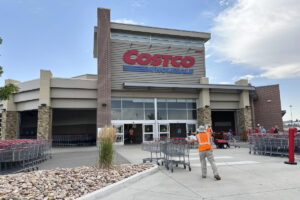In a significant development for both employees and the retail sector, Costco has successfully negotiated a tentative agreement with the Teamsters union, averting what could have been a disruptive strike. Confirmed by Teamsters spokesman Matthew McQuaid, this agreement now awaits approval from union members, emphasizing the ongoing necessity of collaboration between management and labor in today’s rapidly changing economic landscape.
Currently, the Teamsters union represents around 18,000 Costco workers across six key states: California, Washington, Maryland, Virginia, New Jersey, and New York. While this agreement pertains to less than 10% of Costco’s extensive network of 617 stores in the U.S., it underscores a critical dialogue about employees’ rights and pay in a company that recently reported a staggering profit growth.
In the face of such massive profits—Costco’s revenue surged 5% to $254 billion for the fiscal year ending September 1—and a net income of $7.36 billion, which is double what it garnered in 2019, Teamsters members were vocal about their expectations. Earlier this year, the union had warned that without a new three-year contract by the contract’s expiration date, the possibility of a strike loomed large. The Teamsters union is adamant that the remuneration and working conditions must align with Costco’s considerable financial success. Teamsters General President, Sean O’Brien, made this sentiment clear, stating, “Costco Teamsters deserve an industry-leading contract that reflects the company’s massive profits.”
This tentative agreement reflects a shift in labor dynamics, where unions are increasingly demanding compensation that corresponds to the financial performance of their employers. For investors and those closely following the retail sector, it’s essential to monitor how such labor agreements could influence company operations, stock prices, and ultimately, consumer prices.
As we navigate the complexities of the modern economy, it’s clear that the health of labor relations is crucial not only for workers but for the broader financial ecosystem. An empowered workforce can lead to increased productivity, enhanced customer satisfaction, and ultimately, improved company performance—all of which benefit investors.
For Costco, this agreement is a step that could stabilize relations with its employees while avoiding potential disruptions that could affect their bottom line. However, the lingering question is whether this contract will adequately meet the demands of Teamsters, paving the way for future labor negotiations in the retail sector.
Stay tuned as we continue to follow these developments closely, bringing you insights that matter to the savvy investor and analyst alike. At Extreme Investor Network, we aim to provide you with timely updates that go beyond the headlines, offering a deeper understanding of the underlying dynamics at play in the finance world.

